1185 Mountain colony of polygamy
Balancing Bountiful: What I Learned about Feminism from my Polygamist Grandmothers
by Mary Jane Blackmore
Halfmoon Bay: Caitlin Press, 2020
$24.95 / 978177386-0046
Reviewed by Lynne Bowen
*
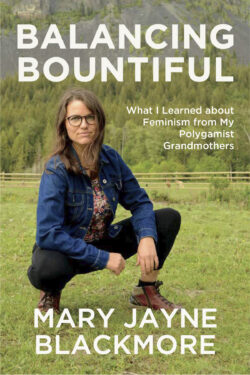 People who live in British Columbia have become familiar with the names Blackmore and Bountiful over the past three decades. And so my motivation for choosing to read Balancing Bountiful by Mary Jayne Blackmore was entirely out of curiosity. I knew from news sources that Bountiful was a Mormon or LDS (The Church of Latter Day Saints) community in the East Kootenays near Creston that practiced polygamy, and that Winston Blackmore, the spiritual leader of Bountiful, had acquired twenty-seven wives serially and sired one hundred fifty children.
People who live in British Columbia have become familiar with the names Blackmore and Bountiful over the past three decades. And so my motivation for choosing to read Balancing Bountiful by Mary Jayne Blackmore was entirely out of curiosity. I knew from news sources that Bountiful was a Mormon or LDS (The Church of Latter Day Saints) community in the East Kootenays near Creston that practiced polygamy, and that Winston Blackmore, the spiritual leader of Bountiful, had acquired twenty-seven wives serially and sired one hundred fifty children.
Author Mary Jayne Blackmore was the fifth child born to Winston Blackmore. The first half of the book reads like an apologia for him and the polygamist colony. It contains a detailed description of an idyllic childhood where Mary Jayne and her ever-growing circle of siblings, half-siblings and second cousins worked and played hard. They milked cows and pulled weeds, swam in the river and rode horseback. The plentiful food was home-grown and home-cooked by their mothers. In the children’s eyes the lifestyle was ideal; cosy adjectives abound in the text: the beds were always warm; the biscuits always buttery.
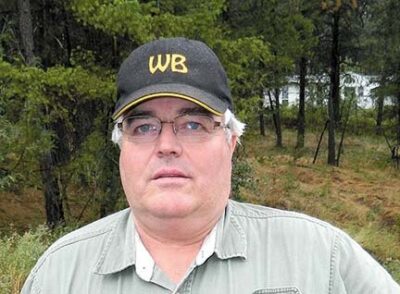
But boys and girls were treated differently. Even when swimming, when both genders had to be modestly clothed, the girls were required to wear long, loose dresses while the boys swam in their jeans and shirts albeit buttoned to the throat. Children of both genders had to cover their legs which was easy for the boys but required the girls to wear long underwear which showed below their skirts. Even though the boys were allowed to cut their hair the girls were not. Their ever-lengthening single braids made them instantly recognizable as residents of Bountiful when they went to Creston to shop.
As Mary Jayne became a teenager, there were other examples of the difference between the way boys and girls were treated in Bountiful before they reached the age of “marriage placement”. Many of the rules were designed to ensure that the girls’ reputations were protected. For example, teenagers of both genders were allowed or even required to earn money at jobs at work camps off site, but the girls had to return to Bountiful every night to sleep. This meant that the boys had to return home to sleep too when the only teenager old enough to have a driver’s licence was a girl. And when it came time for marriage placement, both boys and girls had to marry the person who had been chosen for them, but the boys would go on to marry additional wives while the girls would not.
Throughout the book certain words are used that indicate the difference between the polygamist community and society in general. The leader of the LDS sect is referred to only as the “Prophet” and LDS members as the “Saints.” The entire sect awaited the “Great Destruction” as if it would happen soon, and when it did, only the Saints would be saved. But like all apocalyptic predictions throughout history, the LDS world did not end on schedule. The turn of the new millennium passed without incident.
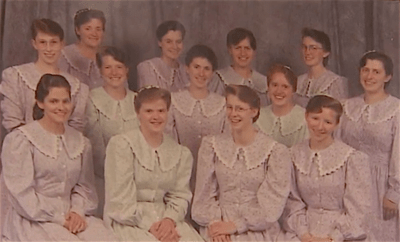
Words like the Saints and the Great Destruction grated on this reader and stylistically the text is overburdened with adjectives and adverbs. But the content is rich and carries the reader easily through the book as Mary Jayne marries, bears two children, and acquires a post-secondary education. Her love for her parents and the memory of her idyllic childhood hold her to the colony even as she divorces, travels the world and becomes the principal of the colony high school.
The photo on the cover reveals much of the second half of the story. Mary Jayne Blackmore is pictured wearing tight jeans and a denim jacket as she hunkers down with a rural scene in the background. Her hair is cut stylishly and she looks attractive but determined. This is not a woman to accept a life of serial marriage, multiple children and limited access to travel and choices. But the subtitle — “What I Learned about Feminism from My Polygamist Grandmothers” — is misleading and the content of the book did not convince this reader that the grandmothers, however admirable, were feminists.

Mary Jayne recounts how members of the sect on either side of the international boundary became antagonists even as very young women continued to be transported across that border to marry older men who already had several wives. She comments on how legal authorities in British Columbia seemed to tolerate the polygamist colony in their midst: “[The Canadian law does] little or nothing to protect vulnerable people who might find themselves living in polygamy and . . .has not discouraged people from living this lifestyle as no one in Canada has been prosecuted under this law since 1890” (p. 272).
In that year the newly-minted Canadian law prohibiting polygamy was probably aimed specifically at the Mormons who had come to Canada from the United States two years before the American church ended the practice of men taking multiple wives. But one hundred years had passed before the RCMP started to review allegations of polygamy in Bountiful and it wasn’t until 2009 that Winston Blackmore was charged with polygamy. At his trial in 2017 during which Blackmore’s first wife and Mary Jayne’s mother, Jane, was a witness for the prosecution, the government argued that polygamy led to physical and sexual abuse, child brides and the subjugation of women. The defence and the civil rights advocates on the other side argued that the law violated the Canadian Charter of Rights’ religious guarantees.
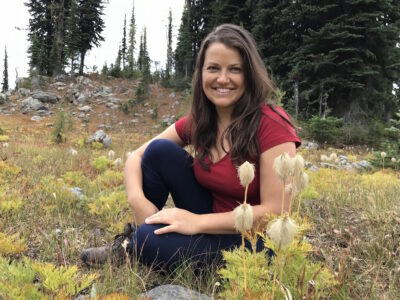
Jane Blackmore was a registered nurse and a trained midwife. She had delivered the colony’s babies and cared for the sick, worked as a community social worker and a family counsellor. She was generous with her money even when she had little. Ultimately she had divorced her husband and moved away from Bountiful.
When finding Winston Blackmore guilty in June 2018 the court said the case was about preventing harm to women and children, society and the institution of monogamous marriage.
The defendant was sentenced to six months house arrest with provisions that allowed him to leave the house for work and to attend church.
Mary Jayne Blackmore is no longer a Mormon although she continues to live in Bountiful. It seems likely that she learned more about feminism from her mother than from her grandmothers, as the book’s subtitle suggests. She stays in the colony for the family life and continues to love and respect both her parents.
*
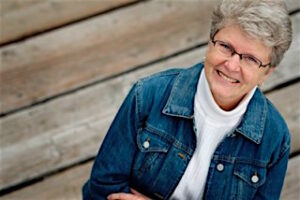
Lynne Bowen has a Masters degree in Western Canadian History and has written seven books of popular history — Boss Whistle: The Coal Miners of Vancouver Island Remember; Three Dollar Dreams; Muddling Through: The Remarkable Story of the Barr Colonists; Those Lake People: Stories of Cowichan Lake; Robert Dunsmuir: Laird of the Mines, Whoever Gives Us Bread: The Story of Italians in British Columbia and Those Island People — which have won several awards including the Lieutenant Governorʼs Medal for Writing B.C. History, the Hubert Evans Nonfiction Prize, and the F.G Bressani Literary Prize for Creative Nonfiction. She taught creative writing at UBC for fourteen years and lives in Nanaimo. Editor’s note: Lynne Bowen has also reviewed books by Haley Healey, Anne Wheeler, and Adriana Davies for The Ormsby Review.
*
The Ormsby Review. More Books. More Reviews. More Often.
Publisher and Editor: Richard Mackie
The Ormsby Review is a journal service for in-depth coverage of B.C. books and authors. The Advisory Board consists of Jean Barman, Wade Davis, Robin Fisher, Cole Harris, Hugh Johnston, Kathy Mezei, Patricia Roy, Maria Tippett, and Graeme Wynn. Scholarly Patron: SFU Graduate Liberal Studies. Honorary Patron: Yosef Wosk. Provincial Government Patron since September 2018: Creative BC
“Only connect.” – E.M. Forster
One comment on “1185 Mountain colony of polygamy”
Interesting review. One issue is that the Bountiful colony is not LDS but FLDS. There is a difference. I am curious what your take would be on this now that the government is legalizing poly marriage relationships in BC?